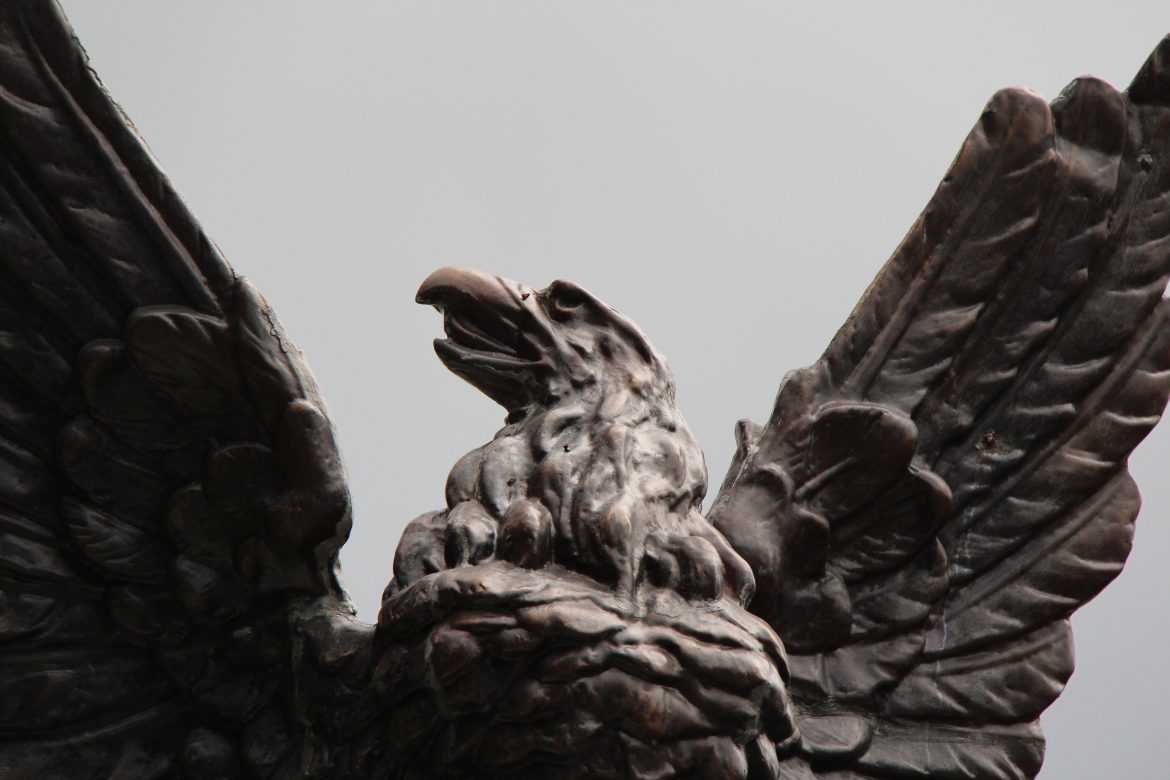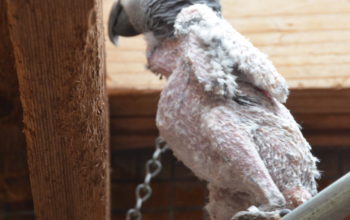Published here by permission of Dr. M.M.Potter
Poppy was reared from an egg. His human parents chose his egg from the nest of a Cockatoo female, they took the newborn home to hand raise him with tenderness and human companionship.
A beloved member of the family for 11 years, Poppy’s situation appeared stable, that is, until his elderly mom developed a lung condition requiring clean air and oxygen. Her doctor said Poppy and his birdie dander had to go, and his heartsick parents released him to Bird Tails. They left in tears.
Poppy didn’t cry, but he waited for them to return. He waited and he waited and after several weeks, he gave up. He stopped talking, he would barely eat, and he sat in his cage lethargic, unwilling to play or relate to the other birds.
Birds DO grieve. But like tiny humans, parrots can’t tell us, “I hurt”, “I want my family” or “what happened?” And like young children, their emotions have to be interpreted through their behavior. A parrot’s human family easily recognizes whether the bird is happy or sad, fearful or content, just by how it acts.
But although bird lovers know better, many scientists see animals as incapable of feelings and accuse pet owners of attributing human characteristics of thought, feeling, and consciousness to their pets. However, even in the scientific world, there is now an increasing acceptance that birds and other animals do have and feel emotions. In fact, the most recent research evidence give support to this view.
According to avian research, birds have all the brain parts they need to express a wide range of emotions. Birds, like mammals and humans, possess a specialized brain structure known as the limbic system, from which originates emotions like anger, joy, love, attachment, frustration and grief. Their amygdala, the principal emotional comptroller within the system, similar to the human brain, connects with their forebrain to analyze situations and respond emotionally. Increasing evidence also suggests that birds show the same mental capacities as the great apes, even in their ability to remember events, people, and to solve problems.
They are also able to form abstract concepts like perishable and nonperishable, and to recognize differences in shape and colors and , on their own, put words together to make meaningful phrases. In other words, birds can think, remember, become attached, and respond to situations, all of which are necessary for emotional expression.
But unlike humans, birds can’t shed tears, can’t smile or frown, and lack facial muscles to show emotional pain. That difference in expression often leads many humans( especially scientist) to believe that birds don’t grieve or feel depressed.
In fact, birds can grieve over any kind of loss: family, a favorite toy, a friend or mate, or a pet in the home. Observing a bird’s eyes, calling, wings, foot movement, beak and overall posture can be helpful in determining when a bird is depressed. A grieving parrot may show a blank stare, call endlessly for the lost one, sit quietly, refuse to eat or play, or stop the crunching beak noises that reveal contentment. These symptoms represent a cry for help from the suffering creature.
Emotional support, even in a severe case, can help a grieving bird recover more quickly and may even keep it alive since grief can be fatal to a bird. Giving the bird it’s favorite foods, intense affection, and frequent attention can help distract it from sadness and minimize the feelings of loss. Some owners report good results from placing the former mate’s photo close to the cage.
Poppy lucked out at Bird Tails. Bird Tails directors immediately recognized his distress and found volunteers who took the sad little cockatoo home for a few days to love him like his parents had. After returning him, they visited every day for a while taking him home periodically to help him adjust to his new life, while receiving the care he so desperately needed.
It all worked out for Poppy. He started eating, talking and playing again; apparently moving through his heartache and learning to relate to other people who love birds.
It is now thought possible that even scientists may be capable of expressing feelings, and showing signs of empathy for other living beings.
iain39:thesun.co.uk




